Publications
Articles, publications, books, tools and multimedia features from the U.S. Institute of Peace provide the latest news, analysis, research findings, practitioner guides and reports, all related to the conflict zones and issues that are at the center of the Institute’s work to prevent and reduce violent conflict.

Nate Wilson on Libya’s Protracted Conflict
Factional violence and civil war have prevented Libya from transitioning to a secure, democratic government in the eight years since Qaddafi’s fall. But USIP’s Nathaniel Wilson says the path to peace still exists, and that “these kinds of generational revolutions take more time than that to play out.”
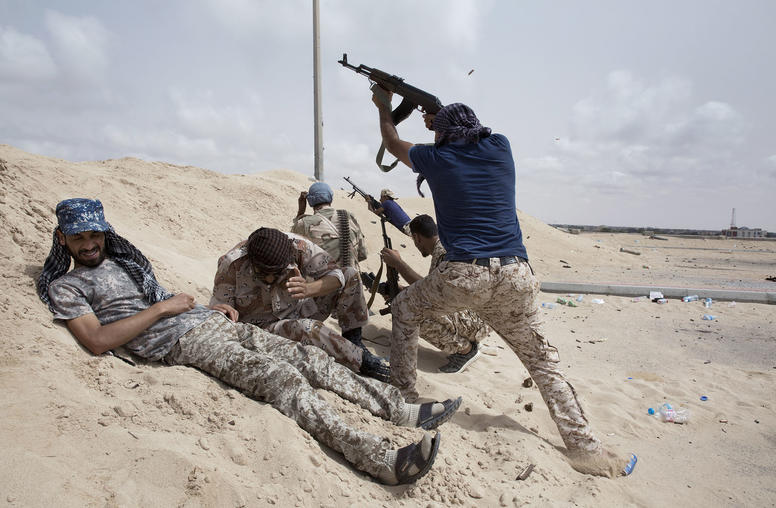
Understanding Libya’s South Eight Years After Qaddafi
Sunday marked eight years since longtime Libyan dictator Col. Muammar al-Qaddafi was killed. In the post-2011 aftermath, another military man, Khalifa Haftar, has taken control over Libya’s east and much of its vast southern region, Fezzan. The battle for the capital, Tripoli, between Haftar’s Libyan National Army (LNA), based in the east, and the U.N.-recognized Government of National Accord (GNA), based in the west in Tripoli, has dominated international attention on Libya. But the stability of the south is all too often overlooked. The region is critical to U.S. interests and any effective policy must not only focus on achieving reconciliation between the east and west, but on building stability in Fezzan.
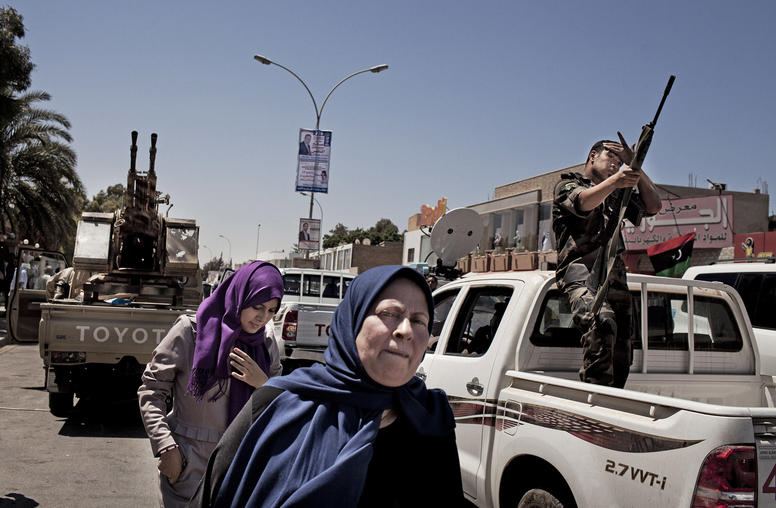
To Help End a War, Call Libya’s Women Negotiators
As Libya struggles to end an armed conflict that has only widened this year, it should turn to a hidden resource: the traditional peacemaking roles of its women. As in many countries facing warfare, women have long played a key role in negotiating or mediating conflicts within families, clans and local communities—but are overlooked by official institutions and peace processes. Amid Libya’s crisis, one such “hidden” peacemaker is Aisha al-Bakoush, a hospital nursing director who has expanded her healing mission from medical illnesses to armed conflict.
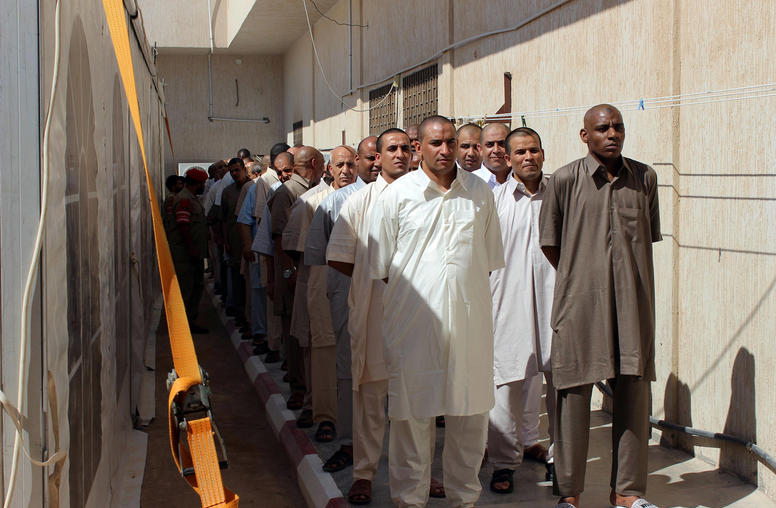
Managing the Secure Release of Sensitive Detainees in Libya
During the 2011 uprising that ousted dictator Muammar Gadhafi, revolutionary fighters in Libya rounded up large numbers of Gadhafi loyalists and detained them in prison facilities and makeshift detention centers around the country. The release of such high-profile detainees, either after they have been acquitted of crimes or served their sentences, is a sensitive political issue. This report examines the domestic and international laws and standards governing the secure release of these detainees and provides a number of policy ideas for addressing the shortcomings of Libya’s current release procedures.
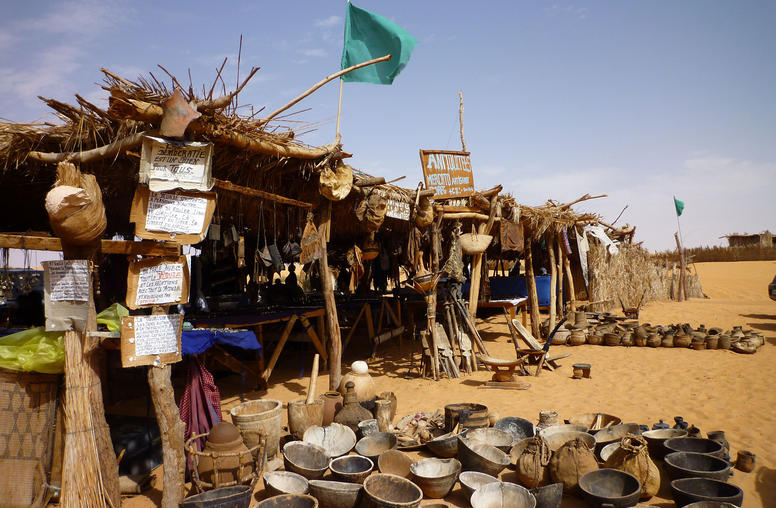
Amid War in Libya’s North, a Peace Effort Launches in the South
The Libyan faction leader, Field Marshal Khalifa Haftar, made global headlines this month with his assault on the capital, Tripoli. But in January, fewer people noticed his preparatory move: a takeover of the country’s vast southern region, Fezzan. Fezzan is mostly desert but flecked with oil fields and agriculturally rich oases. Libya’s U.N.-recognized government, which is Haftar’s rival in claiming power, has largely neglected the south, leaving armed groups from different tribes to fight for control of economic resources. This absence of governance, across an area larger than California, offers a haven for threats to regional and U.S. security interests: human trafficking, arms smuggling, and violent extremist groups.
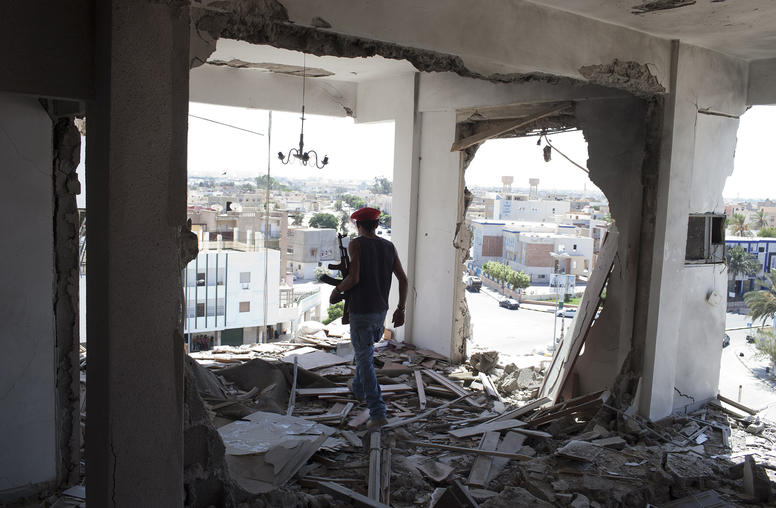
Q&A: Libya’s Sudden New Risk of War
Just as the United Nations was preparing to host a national conference in Libya this month to arrange for national elections to unify the country’s fractured governance, the faction that dominates the country’s east, the Libyan National Army, launched a military offensive last week on the capital, Tripoli. With the past week’s fighting, “the likelihood is greater than at any point since 2014 for destructive and bloody conflict” of an uncertain duration and outcome, according to Nate Wilson, who manages USIP programs in Libya. Wilson monitors Libya from neighboring Tunisia while working with Libyan officials, researchers on projects to inform international policymakers, and with local Libyan groups that work to reconcile disputes and build a foundation for national peacemaking. In response to questions, he discussed what’s at stake in the new fighting, and how the international community might respond.
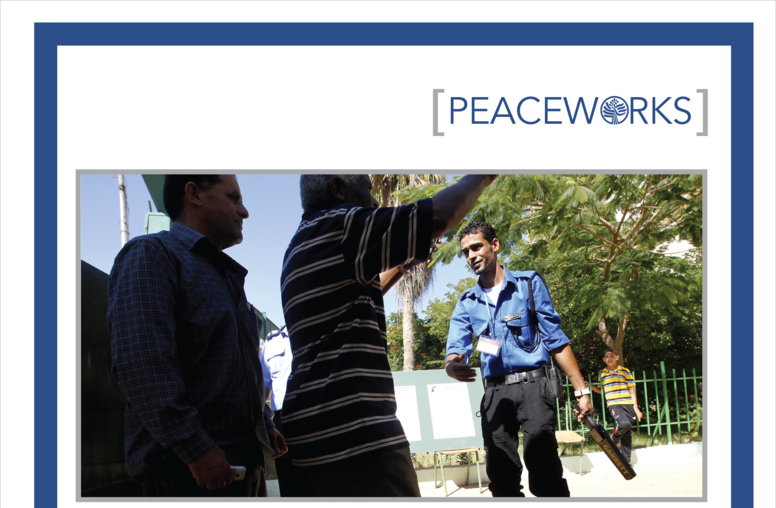
Libya’s Next Elections: A Step Forward or a Step Back?
Since the uprisings in Libya began in February 2011, the country has seen considerable and almost constant upheaval. International players have tried to facilitate a transition to democracy, but success has been fleeting. Now, in the midst of political division and internal conflict, Libyans are attempting to hold presidential...
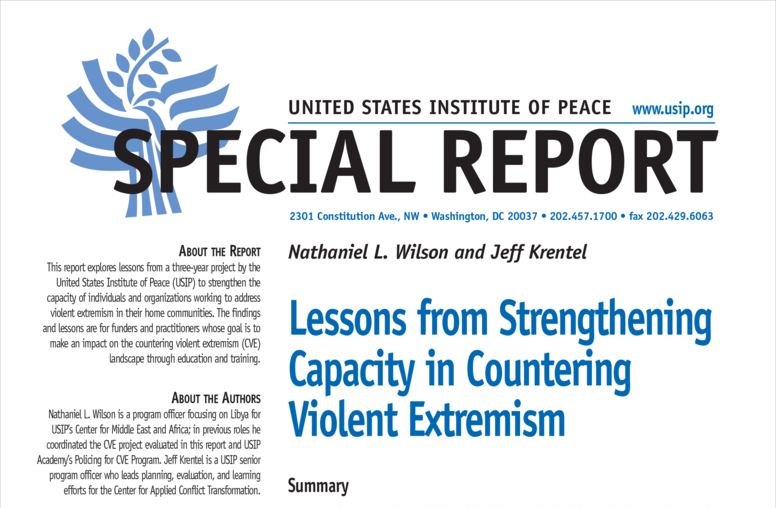
Lessons from Strengthening Capacity in Countering Violent Extremism
An evaluation of a three-year USIP program to strengthen capacity in the field to counter violent extremism revealed that effective project design, thoughtful recruitment strategies, and tailored course content are critical. Participants reported applying what they learned to either adjust existing CVE programs or develop new programs altogether. This report explores the lessons from the project for funders and practitioners to develop more effective projects.

Music, Poetry, Film: Shoring Up Identities for Peaceful Ends
A Somali master poet reconnects citizens to their government. A Lebanese filmmaker collects fighters' stories to dramatize the cost of war. Police in Northern Ireland adopt symbols of peace to signal a new ethos. In places simmering with long-standing social tensions and alienation, common cultural understandings can help ease hostility, suggesting a potentially powerful role for a mechanism still under-used in peacebuilding: the arts.